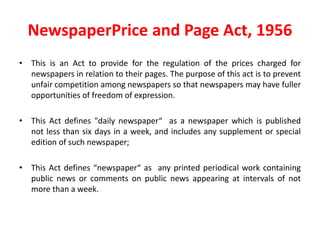The document summarizes key aspects of laws related to mass communication in India, including the Indian Telegraph Act (1885), Indian Post Office Act (1898), Newspaper Price and Page Act (1956), and Newspaper Price Control Act (1972). The acts establish the government's authority over telegraphs, postal services, and regulation of newspaper prices and pages to prevent unfair competition. The acts define offenses and penalties related to misuse or improper handling of telegraphs, postal articles, and newspaper reporting/pricing requirements.
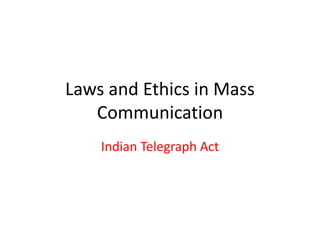


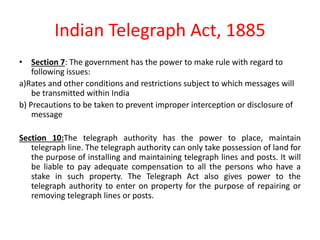

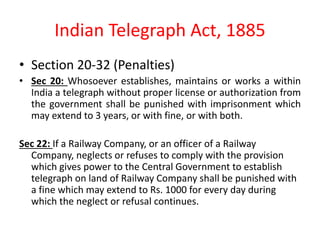



![Indian Post Office Act, 1898
Wherever within India posts or postal communications are
established by the Central Government, the Central
Government shall have the exclusive privilege of conveying by
post, from one place to another.
The [Government] shall not incur any liability by reason of loss,
misdelivery or delay of, or damage to, any postal article in
course of transmission by post; and no officer of the Post
Office shall incur any liability by reason of any such loss,
misdelivery, delay or damage, unless he has caused the same
fraudulently or by his willful act.](https://image.slidesharecdn.com/indiantelegraphact-141116104343-conversion-gate01/85/Indian-telegraph-act-10-320.jpg)
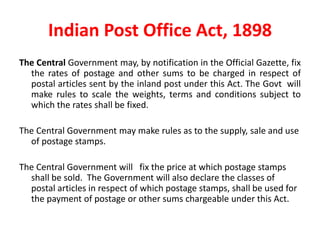
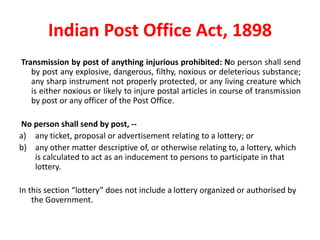
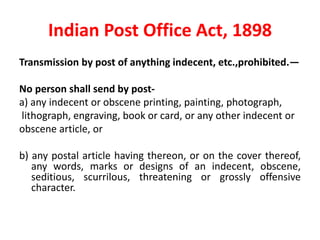
![Indian Post Office Act, 1898
Power to intercept postal articles for public good.-
O n the occurrence of any public emergency, or in the interest of the public
safety, the Government [Central or State], or any officer specially
authorised in this behalf the Govt may, by order in writing, direct that any
postal article shall be intercepted or detained.
No newspaper printed and published in [India] without conforming to the
rules laid down in the Press and Registration of Books Act, shall be
transmitted by post.
Transmission by post of value-payable postal articles.- The [Central
Government] may, by notification in the [officialGazette], direct that, a
specified sum of money may be recovered on the delivery from the
addressee. The sum, so recovered, shall be paid to the sender.](https://image.slidesharecdn.com/indiantelegraphact-141116104343-conversion-gate01/85/Indian-telegraph-act-14-320.jpg)



